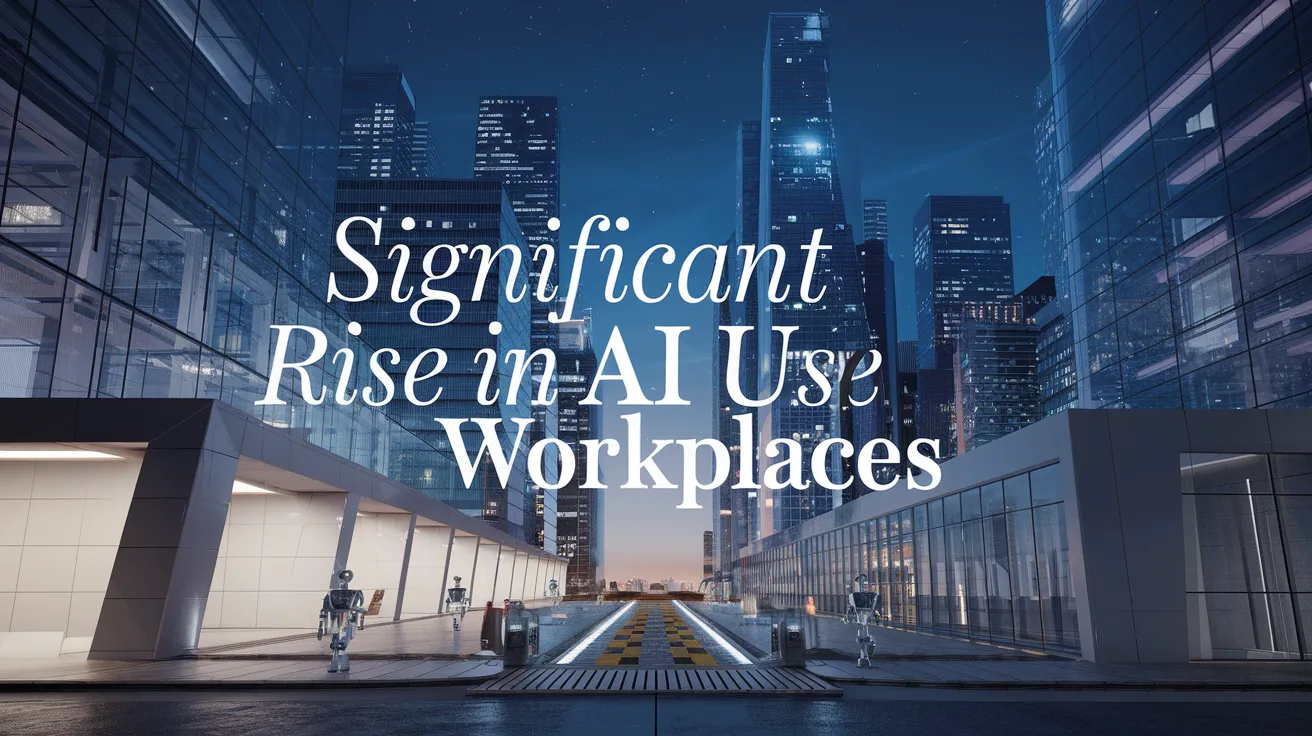Significant Rise in AI Use in Workplaces

New research conducted by the business group Ibec has unveiled a substantial increase in the utilization of artificial intelligence (AI) in workplaces across various sectors. According to the study, the proportion of employees using AI for their work tasks surged to 40% in July 2025, a notable rise from just 19% in August 2024.
Growth in AI-Specific Roles
The increase in AI adoption is particularly evident in specific roles, where the utilization rate escalated from 12% in 2024 to 33% in 2025. This indicates a growing recognition of AI’s potential to enhance operational efficiency and support employee productivity.
In a survey of 800 workers, 80% of respondents acknowledged that AI is positively impacting productivity. Furthermore, 75% reported that AI enables them to focus on other critical aspects of their roles, and 81% expressed a desire to make more effective use of AI with additional training.
Need for Training and Support
While the findings indicate a significant uptake in AI usage, they also reveal challenges in training and readiness. The research highlighted that 27% of respondents had not received any formal AI training, with a striking 83% stating they require more training to effectively leverage AI tools in their work.
These findings were released as part of Ibec’s “Work Just Got Smarter” campaign, which also introduced new AI guidance aimed at helping businesses navigate the adoption of AI across various areas.
Calls for Strategic Action
Erik O’Donovan, Head of Digital Policy at Ibec, stated that realizing the economic opportunities presented by AI—including net job creation—requires urgent and coordinated efforts from the government, sectors, organizations, and individuals. “AI access, literacy, and skills are now a strategic imperative for all,” he emphasized.
Anne O’Leary, President of Ibec and Head of Meta Ireland, underscored the importance of keeping pace with advancements in AI. She noted that Ibec’s 2024 HR Update Survey indicated that 70% of respondents recognize AI’s potential to enhance productivity, highlighting its transformative impact on the workforce.
Human-Centered Approach
Despite the clear benefits of AI, O’Leary cautioned against underestimating the continued significance of human talent, operational processes, and corporate cultures that rely on human interaction and creativity. She asserted that realizing the full potential of AI necessitates keeping people at the center of its deployment, allowing for a balanced approach that combines technology with human ingenuity.
As businesses increasingly integrate AI tools into their operations, the need for training and adaptability in the workforce remains critical to successfully navigate this ongoing shift.